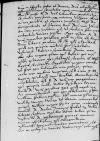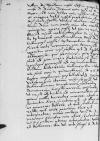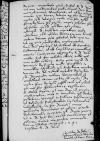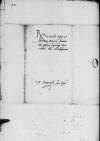Quod mihi Reverendissima Dominatio Vestra Gołąb (Columba), village in Poland, 11 km NW of Puławy, 56 km NW of Lublin, Dantiscus was a parish-priest there in the years 1521-1537⌊ColumbamGołąb (Columba), village in Poland, 11 km NW of Puławy, 56 km NW of Lublin, Dantiscus was a parish-priest there in the years 1521-1537⌋ gratulatur, id facile perspicio ex minime vulgari illius in me gratia et favore proficisci. Mihi Dei benignitate et favore reverendissimi Samuel Maciejowski (*1499 – †1550), humanist and diplomat, one of the most trusted advisors to King Sigismund I and then to his son Sigismund II Augustus; from 1521 Canon of the Collegiate Chapter in Sandomierz, and from 1530 in Kielce; from 1531 Canon of Gniezno; from 1532 or 1533 to 1537 royal secretary (previously scribe at the royal chancellery); 1537-1539 Grand Secretary; 1539-1547 Crown Vice-Chancellor; 1539-1541 Bishop of Chełm; 1541-1545 Bishop of Płock; 1545-1550 Bishop of Cracow; 1547-1550 Crown Grand Chancellor; in 1532 royal envoy to Rome; in 1534 and 1538 royal envoy to the local diets (WYCZAŃSKI 1990, p. 257-258; Urzędnicy 10, p. 184; PSB 19 Machowski - Maria Kazimiera, p. 64-69)⌊domini mei PlocensisSamuel Maciejowski (*1499 – †1550), humanist and diplomat, one of the most trusted advisors to King Sigismund I and then to his son Sigismund II Augustus; from 1521 Canon of the Collegiate Chapter in Sandomierz, and from 1530 in Kielce; from 1531 Canon of Gniezno; from 1532 or 1533 to 1537 royal secretary (previously scribe at the royal chancellery); 1537-1539 Grand Secretary; 1539-1547 Crown Vice-Chancellor; 1539-1541 Bishop of Chełm; 1541-1545 Bishop of Płock; 1545-1550 Bishop of Cracow; 1547-1550 Crown Grand Chancellor; in 1532 royal envoy to Rome; in 1534 and 1538 royal envoy to the local diets (WYCZAŃSKI 1990, p. 257-258; Urzędnicy 10, p. 184; PSB 19 Machowski - Maria Kazimiera, p. 64-69)⌋ ita iam prospectum est, ut fortuna hac mea contentus vivere possim. Ago autem Reverendissimae Dominationi Vestrae ingentes gratias, quod in suis ad reverendissimum dominum litteris gratum id sibi esse ostenderit, quod me quoque auctum hoc sacerdotio voluerit. Revera secundum Deum non illi alii magis quam ipsi debeo, qui nisi esset, esurirem ego fortasse strenue
s(erenissimae) or s(acrae)⌈s(erenissimae)s(erenissimae) or s(acrae)⌉
Sigismund I Jagiellon (Zygmunt I) (*1467 – †1548), King of Poland and Grand Duke of Lithuania (1506-1548); Duke of Głogów (Glogau) (1499-1506), Duke of Opava (1501-1506), Governor of Silesia (1504-1506); son of King Kazimierz IV Jagiellon and Elisabeth of Austria⌊maiestati regiaeSigismund I Jagiellon (Zygmunt I) (*1467 – †1548), King of Poland and Grand Duke of Lithuania (1506-1548); Duke of Głogów (Glogau) (1499-1506), Duke of Opava (1501-1506), Governor of Silesia (1504-1506); son of King Kazimierz IV Jagiellon and Elisabeth of Austria⌋ serviendo. Agebatur magno conatu, ut hac ego Columba non potirer, quam certe nec ambivi umquam, sed eam s(erenissima) or s(acra)⌈s(erenissima)s(erenissima) or s(acra)⌉ Sigismund I Jagiellon (Zygmunt I) (*1467 – †1548), King of Poland and Grand Duke of Lithuania (1506-1548); Duke of Głogów (Glogau) (1499-1506), Duke of Opava (1501-1506), Governor of Silesia (1504-1506); son of King Kazimierz IV Jagiellon and Elisabeth of Austria⌊maiestas regiaSigismund I Jagiellon (Zygmunt I) (*1467 – †1548), King of Poland and Grand Duke of Lithuania (1506-1548); Duke of Głogów (Glogau) (1499-1506), Duke of Opava (1501-1506), Governor of Silesia (1504-1506); son of King Kazimierz IV Jagiellon and Elisabeth of Austria⌋ avolasse iam dicebat.
Quandoquidem constitutum est Reverendissimae Dominationi Vestrae non peregrinari, ego quoque nullo Rome (Roma), city in central Italy, on the Tiber river, seat of the Holy See⌊UrbisRome (Roma), city in central Italy, on the Tiber river, seat of the Holy See⌋ desiderio teneor. Reverendissimae Dominationi Vestrae gratias ago, quod nepoti me suo commendaverit, quo ego fideliorem Rome (Roma), city in central Italy, on the Tiber river, seat of the Holy See⌊isticRome (Roma), city in central Italy, on the Tiber river, seat of the Holy See⌋ nullum habere possum. Etsi minas istas non valde timeo, tamen ut iterum commendet, quaeso. Nullus magis hostis, quam contemptus, nocuit. Dominus doctor Jan Benedyktowicz Solfa (Ioannes Benedicti de Trebul, Ioannes Benedicti Solpha) (*1483 – †1564), physician, lawyer, poet and historian; in 1541 ennobled by Emperor Charles V of Habsburg; from 1521 Canon of the Collegiate Chapter in Glogau (Głogów); from 1522 court physician of King Sigismund I Jagiellon; from 1526 Canon of Ermland (Warmia); from ca. 1528 Canon of Vilnius; from 1529 Canon of St. John’s Collegiate Church in Warsaw; from 1531 Custos of Łowicz; from 1538 Canon of Wrocław (Breslau); from 1539 Canon of Sandomierz; from 1547 Canon of Cracow and Provost of Ermland (KOŻUSZEK, passim)⌊IoannesJan Benedyktowicz Solfa (Ioannes Benedicti de Trebul, Ioannes Benedicti Solpha) (*1483 – †1564), physician, lawyer, poet and historian; in 1541 ennobled by Emperor Charles V of Habsburg; from 1521 Canon of the Collegiate Chapter in Glogau (Głogów); from 1522 court physician of King Sigismund I Jagiellon; from 1526 Canon of Ermland (Warmia); from ca. 1528 Canon of Vilnius; from 1529 Canon of St. John’s Collegiate Church in Warsaw; from 1531 Custos of Łowicz; from 1538 Canon of Wrocław (Breslau); from 1539 Canon of Sandomierz; from 1547 Canon of Cracow and Provost of Ermland (KOŻUSZEK, passim)⌋ habet ex Rome (Roma), city in central Italy, on the Tiber river, seat of the Holy See⌊UrbeRome (Roma), city in central Italy, on the Tiber river, seat of the Holy See⌋ litteras septima Aprilis datas, triduo, quam Vestra Reverendissima Dominatio posteriores, priores. Omnino tamen absolutum esse Alexander Sculteti (Scholtcze) (*ca. 1485 – †1570), doctor of canon law, cartographer, historian and friend of Copernicus; accused by Dantiscus and Stanisław Hozjusz (Hosius) of Sacramentarian heresy, in 1540 banished by King Sigismund I Jagiellon; in 1541 imprisoned by the Inquisition in Rome; after release from prison in 1544 he stayed in Rome for the rest of his life; 1509-1516 notary at the Roman Curia; 1519-1541 Canon of Ermland (Warmia), 1530-1539 Chancellor of the Ermland Chapter; 1536-1538 administrator of the komornictwo of Mehlsack (Melzak, today Pieniężno) (KOPICZKO 2, p. 299; SBKW, p. 219-220)⌊AlexandrumAlexander Sculteti (Scholtcze) (*ca. 1485 – †1570), doctor of canon law, cartographer, historian and friend of Copernicus; accused by Dantiscus and Stanisław Hozjusz (Hosius) of Sacramentarian heresy, in 1540 banished by King Sigismund I Jagiellon; in 1541 imprisoned by the Inquisition in Rome; after release from prison in 1544 he stayed in Rome for the rest of his life; 1509-1516 notary at the Roman Curia; 1519-1541 Canon of Ermland (Warmia), 1530-1539 Chancellor of the Ermland Chapter; 1536-1538 administrator of the komornictwo of Mehlsack (Melzak, today Pieniężno) (KOPICZKO 2, p. 299; SBKW, p. 219-220)⌋ affirmat. Ego nolo mortem peccatoris, sed nec in ecclesia tamen Varmiensi Alexander Sculteti (Scholtcze) (*ca. 1485 – †1570), doctor of canon law, cartographer, historian and friend of Copernicus; accused by Dantiscus and Stanisław Hozjusz (Hosius) of Sacramentarian heresy, in 1540 banished by King Sigismund I Jagiellon; in 1541 imprisoned by the Inquisition in Rome; after release from prison in 1544 he stayed in Rome for the rest of his life; 1509-1516 notary at the Roman Curia; 1519-1541 Canon of Ermland (Warmia), 1530-1539 Chancellor of the Ermland Chapter; 1536-1538 administrator of the komornictwo of Mehlsack (Melzak, today Pieniężno) (KOPICZKO 2, p. 299; SBKW, p. 219-220)⌊eumAlexander Sculteti (Scholtcze) (*ca. 1485 – †1570), doctor of canon law, cartographer, historian and friend of Copernicus; accused by Dantiscus and Stanisław Hozjusz (Hosius) of Sacramentarian heresy, in 1540 banished by King Sigismund I Jagiellon; in 1541 imprisoned by the Inquisition in Rome; after release from prison in 1544 he stayed in Rome for the rest of his life; 1509-1516 notary at the Roman Curia; 1519-1541 Canon of Ermland (Warmia), 1530-1539 Chancellor of the Ermland Chapter; 1536-1538 administrator of the komornictwo of Mehlsack (Melzak, today Pieniężno) (KOPICZKO 2, p. 299; SBKW, p. 219-220)⌋  Bcz, 1618, p. 470 esse vellem.
Bcz, 1618, p. 470 esse vellem.
De Dietrich von Rheden (Teodoryk Reden) (*1492 – †1556), doctor of both canon and civil law. Rheden spent most of his life in Rome where he was dealing with, among other things, the affairs of the Ermland Chapter; 1532-1551 Canon of Ermland (Warmia); Canon of Mainz and Lübeck; in 1551 he was appointed Bishop of Lübeck, but he did not accept the dignity (KOPICZKO 2, p. 263; SBKW, p. 200)⌊TheodoricoDietrich von Rheden (Teodoryk Reden) (*1492 – †1556), doctor of both canon and civil law. Rheden spent most of his life in Rome where he was dealing with, among other things, the affairs of the Ermland Chapter; 1532-1551 Canon of Ermland (Warmia); Canon of Mainz and Lübeck; in 1551 he was appointed Bishop of Lübeck, but he did not accept the dignity (KOPICZKO 2, p. 263; SBKW, p. 200)⌋ nihil adhuc accepi. Dixit hidden by binding⌈[it]it hidden by binding⌉ mihi dominus doctor Marienburg (Malbork), town and castle in northern Poland, Pomeranian Voivodeship, on the Nogat river, a branch of the Vistula at its delta, the capital of the Grand Masters of the Teutonic Order in Prussia (1309-1457), a voivodeship capital in Royal Prussia, which belonged to the Kingdom of Poland (1466-1772). Marienburg (taking turns with Graudenz (Grudziądz)) was the venue for the Provincial Diets of Royal Prussia, which were chaired by the bishop of Ermland (Warmia)⌊IoannesMarienburg (Malbork), town and castle in northern Poland, Pomeranian Voivodeship, on the Nogat river, a branch of the Vistula at its delta, the capital of the Grand Masters of the Teutonic Order in Prussia (1309-1457), a voivodeship capital in Royal Prussia, which belonged to the Kingdom of Poland (1466-1772). Marienburg (taking turns with Graudenz (Grudziądz)) was the venue for the Provincial Diets of Royal Prussia, which were chaired by the bishop of Ermland (Warmia)⌋ eum esse in Königsberg (Królewiec, Mons Regius, Regiomontium), city in Ducal Prussia, on the mouth of the Pregel (Pregoła) river, capital city of Ducal Prussia; today Kaliningrad in Russia⌊Monte hidden by binding⌈[e]e hidden by binding⌉ RegioKönigsberg (Królewiec, Mons Regius, Regiomontium), city in Ducal Prussia, on the mouth of the Pregel (Pregoła) river, capital city of Ducal Prussia; today Kaliningrad in Russia⌋, sed non video eum moliri aliquid. Si maxime velit, nihil profecturum spero, nisi forte sigillo utatur anulari. Nam apud hidden by binding⌈[d]d hidden by binding⌉ Samuel Maciejowski (*1499 – †1550), humanist and diplomat, one of the most trusted advisors to King Sigismund I and then to his son Sigismund II Augustus; from 1521 Canon of the Collegiate Chapter in Sandomierz, and from 1530 in Kielce; from 1531 Canon of Gniezno; from 1532 or 1533 to 1537 royal secretary (previously scribe at the royal chancellery); 1537-1539 Grand Secretary; 1539-1547 Crown Vice-Chancellor; 1539-1541 Bishop of Chełm; 1541-1545 Bishop of Płock; 1545-1550 Bishop of Cracow; 1547-1550 Crown Grand Chancellor; in 1532 royal envoy to Rome; in 1534 and 1538 royal envoy to the local diets (WYCZAŃSKI 1990, p. 257-258; Urzędnicy 10, p. 184; PSB 19 Machowski - Maria Kazimiera, p. 64-69)⌊reverendissimum dominumSamuel Maciejowski (*1499 – †1550), humanist and diplomat, one of the most trusted advisors to King Sigismund I and then to his son Sigismund II Augustus; from 1521 Canon of the Collegiate Chapter in Sandomierz, and from 1530 in Kielce; from 1531 Canon of Gniezno; from 1532 or 1533 to 1537 royal secretary (previously scribe at the royal chancellery); 1537-1539 Grand Secretary; 1539-1547 Crown Vice-Chancellor; 1539-1541 Bishop of Chełm; 1541-1545 Bishop of Płock; 1545-1550 Bishop of Cracow; 1547-1550 Crown Grand Chancellor; in 1532 royal envoy to Rome; in 1534 and 1538 royal envoy to the local diets (WYCZAŃSKI 1990, p. 257-258; Urzędnicy 10, p. 184; PSB 19 Machowski - Maria Kazimiera, p. 64-69)⌋ non puto Dietrich von Rheden (Teodoryk Reden) (*1492 – †1556), doctor of both canon and civil law. Rheden spent most of his life in Rome where he was dealing with, among other things, the affairs of the Ermland Chapter; 1532-1551 Canon of Ermland (Warmia); Canon of Mainz and Lübeck; in 1551 he was appointed Bishop of Lübeck, but he did not accept the dignity (KOPICZKO 2, p. 263; SBKW, p. 200)⌊eumDietrich von Rheden (Teodoryk Reden) (*1492 – †1556), doctor of both canon and civil law. Rheden spent most of his life in Rome where he was dealing with, among other things, the affairs of the Ermland Chapter; 1532-1551 Canon of Ermland (Warmia); Canon of Mainz and Lübeck; in 1551 he was appointed Bishop of Lübeck, but he did not accept the dignity (KOPICZKO 2, p. 263; SBKW, p. 200)⌋ ita occulte quicquam agere posse, ut ego ne resciam.
Quod cupit certior scire fieri Reverendissima Dominatio Vestra de testamenti confirmatione reverendissimo Tiedemann Giese (Tidemannus Gisius) (*1480 – †1550), in 1519 ennobled by King Sigismund I; 1504-1538 Canon of Ermland (Warmia); 1516-1527, 1533-1537 Judicial Vicar and Vicar General of Ermland; 1523-1538 Custos of Ermland; 1537-1549 Bishop of Kulm (Chełmno); 1549-1550 Bishop of Ermland (BORAWSKA 1984, passim)⌊domino CulmensiTiedemann Giese (Tidemannus Gisius) (*1480 – †1550), in 1519 ennobled by King Sigismund I; 1504-1538 Canon of Ermland (Warmia); 1516-1527, 1533-1537 Judicial Vicar and Vicar General of Ermland; 1523-1538 Custos of Ermland; 1537-1549 Bishop of Kulm (Chełmno); 1549-1550 Bishop of Ermland (BORAWSKA 1984, passim)⌋ missa: Testamentum id cuiusmodi hidden by binding⌈[odi]odi hidden by binding⌉ fuerit, certe memoria non teneo, sed executor eius, nisi fallor, est dominus castellanus hidden by binding⌈[nus]nus hidden by binding⌉ Elbingensis, qui pecuniam, quae legata fuit ad pia opera, daturum se Tiedemann Giese (Tidemannus Gisius) (*1480 – †1550), in 1519 ennobled by King Sigismund I; 1504-1538 Canon of Ermland (Warmia); 1516-1527, 1533-1537 Judicial Vicar and Vicar General of Ermland; 1523-1538 Custos of Ermland; 1537-1549 Bishop of Kulm (Chełmno); 1549-1550 Bishop of Ermland (BORAWSKA 1984, passim)⌊domino episcopoTiedemann Giese (Tidemannus Gisius) (*1480 – †1550), in 1519 ennobled by King Sigismund I; 1504-1538 Canon of Ermland (Warmia); 1516-1527, 1533-1537 Judicial Vicar and Vicar General of Ermland; 1523-1538 Custos of Ermland; 1537-1549 Bishop of Kulm (Chełmno); 1549-1550 Bishop of Ermland (BORAWSKA 1984, passim)⌋ promisit ad instaurandum ludum litterarium Culmensem. Atque hidden by binding⌈[e]e hidden by binding⌉ ea fuit causa, quamobrem id a s(erenissima) or s(acra)⌈s(erenissima)s(erenissima) or s(acra)⌉ Sigismund I Jagiellon (Zygmunt I) (*1467 – †1548), King of Poland and Grand Duke of Lithuania (1506-1548); Duke of Głogów (Glogau) (1499-1506), Duke of Opava (1501-1506), Governor of Silesia (1504-1506); son of King Kazimierz IV Jagiellon and Elisabeth of Austria⌊maiestate regiaSigismund I Jagiellon (Zygmunt I) (*1467 – †1548), King of Poland and Grand Duke of Lithuania (1506-1548); Duke of Głogów (Glogau) (1499-1506), Duke of Opava (1501-1506), Governor of Silesia (1504-1506); son of King Kazimierz IV Jagiellon and Elisabeth of Austria⌋ confirmari postulabat Tiedemann Giese (Tidemannus Gisius) (*1480 – †1550), in 1519 ennobled by King Sigismund I; 1504-1538 Canon of Ermland (Warmia); 1516-1527, 1533-1537 Judicial Vicar and Vicar General of Ermland; 1523-1538 Custos of Ermland; 1537-1549 Bishop of Kulm (Chełmno); 1549-1550 Bishop of Ermland (BORAWSKA 1984, passim)⌊dominus episcopus hidden by binding⌈[s]s hidden by binding⌉Tiedemann Giese (Tidemannus Gisius) (*1480 – †1550), in 1519 ennobled by King Sigismund I; 1504-1538 Canon of Ermland (Warmia); 1516-1527, 1533-1537 Judicial Vicar and Vicar General of Ermland; 1523-1538 Custos of Ermland; 1537-1549 Bishop of Kulm (Chełmno); 1549-1550 Bishop of Ermland (BORAWSKA 1984, passim)⌋.
Wolfgang Folder ⌊VolfgangusWolfgang Folder ⌋ iterum mihi scripsit, ut declarationem impetrarem sententiae dominorum consiliariorum eiusmodi, ut ne sit adstrictus ad numerandum plus hidden by binding⌈[s]s hidden by binding⌉ quam mille trecentas marcas atqui in sententia clare scriptum est, et illas ab eo numerari debere written over i⌈iee written over i⌉, et aut stabulum reddi, aut eius pretium. Eius est interpretari, cuius condere. Vestra Reverendissima Dominatio, princeps senator, cum aliis sententiam tulit, eadem etiam interpretari velit et declarare ita, ut ante scripsi Reverendissimae Dominationi Vestrae.
 Bcz, 1618, p. 471
Bcz, 1618, p. 471
De puero amandato quod scribit Reverendissima Dominatio Vestra, me non mediocriter perturbavit. Duo domi meae fuerunt: Mauritius (Moritz), at least in 1537-1547 servant of Ioannes Dantiscus, often sent with letters and packages to the royal court (CIDTC, e.g. IDL 1630, IDL 4476, IDL 3266, IDL 3279)⌊MauriciusMauritius (Moritz), at least in 1537-1547 servant of Ioannes Dantiscus, often sent with letters and packages to the royal court (CIDTC, e.g. IDL 1630, IDL 4476, IDL 3266, IDL 3279)⌋ et alter, cuius nomen non teneo. Utrum ex his dimiserit, nescio, sed uterque certe, cum hic esset, honestissime s written over g⌈gss written over g⌉e gessit neque culpam hic aliquam, quod quidem ego sciam, admisit.
Dominum Hans Holsten (†after 1548)⌊HolsteinHans Holsten (†after 1548)⌋ cupiebam certe adiutum, sed aliter decernere non licuit. Cetera tamen, quae optabat, dedi operam, ut ex eius sententia conficerentur. Reverendissimo domino persuasi, ut scriberet ad senatum Gedanensem et ad consulares nonnullos. Earum litterarum exempla Reverendissimae Dominationi Vestrae mitto. Erit hoc arbitrii illius reddi aut non reddi iubere.
Nova, quae misit dominus Biecensis, descripta mitto. Scribitur a nonnullis, absoluta esse Regensburg (Ratisbona), city in southeastern Germany, Bavaria, on the Danube river⌊RatisbonaeRegensburg (Ratisbona), city in southeastern Germany, Bavaria, on the Danube river⌋ comitia, verum ita, ut rebus infectis discessum sit, Charles V of Habsburg (*1500 – †1558), ruler of the Burgundian territories (1506-1555), King of Spain as Charles I (1516-1556), King of Naples and Sicily, King of the Romans (1519-1530), Holy Roman Emperor of the German Nation (elected 1519, crowned 1530, abdicated 1556); son of Philip I the Handsome and Joanna the Mad of Castile⌊imperatorCharles V of Habsburg (*1500 – †1558), ruler of the Burgundian territories (1506-1555), King of Spain as Charles I (1516-1556), King of Naples and Sicily, King of the Romans (1519-1530), Holy Roman Emperor of the German Nation (elected 1519, crowned 1530, abdicated 1556); son of Philip I the Handsome and Joanna the Mad of Castile⌋ autem Innsbruck (Oenipons), city in western Austria, Tyrol, on the Inn river⌊OenopontumInnsbruck (Oenipons), city in western Austria, Tyrol, on the Inn river⌋ se contulerit. Quam certum sit, nescio.
De nostro hinc discessu nihil certi est. Sunt qui nos hic hiematuros existiment. S(erenissima) or S(acra)⌈S(erenissima)S(erenissima) or S(acra)⌉ maiestas regia est iam, Deo sit gratia, confirmatior, cras in templum esse dicitur proditura.
Vacant in Poland (Kingdom of Poland, Polonia)⌊PoloniaPoland (Kingdom of Poland, Polonia)⌋ Sandomiriensis et Belsensis palatinatus, castellanatus Calissiensis, in hoc Lithuania⌊DucatuLithuania⌋ omnes primariae dignitates et officia. Quando distribuentur, incertum est.
Deum precor, ut Reverendissimam Dominationem Vestram diu servet incolumem et felicem.
Cuius me gratiae commendo.
 Bcz, 1618, p. 470 esse vellem.
Bcz, 1618, p. 470 esse vellem.



